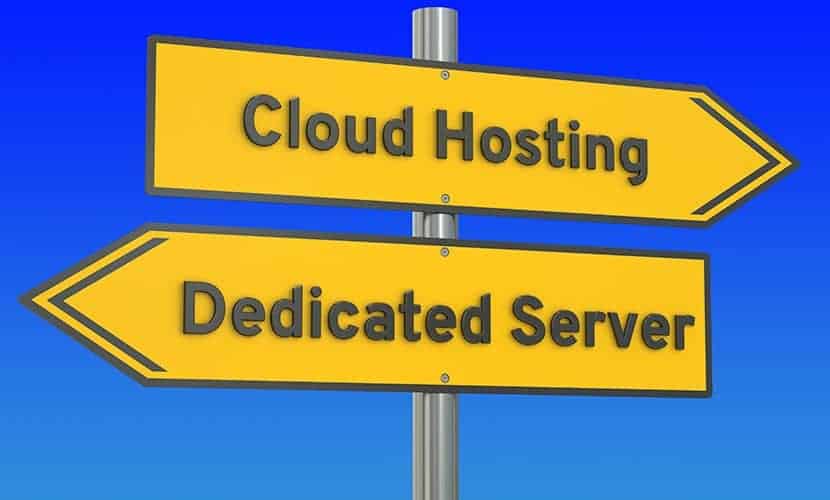Small and medium businesses require servers that can scale according to their requirements. It is important to not overpay for resources that aren’t used, while also having enough hardware to handle unexpected traffic spikes. Choosing the right server for your services is crucial for setting up a solid foundation for your business.
Small Business Server Buying Guide
If you don’t have experience in choosing a server, follow this five-step guide that examines all the crucial factors to take into consideration.
Determine What Business Servers Will Be Used For
Small businesses use servers for a wide variety of reasons. Here are the most common uses of a server in a small business environment:
Storing and sharing files. It is vital for data security and business continuity. You can also enable employees to work remotely. You can also enable employees to work remotely.Secure domain-specific email hosting.
Startups can start by utilizing Gmail, Yahoo, or Mail.com, but it’s best to transition into a domain-specific email client. SMBs should upgrade and think more deeply about security and their digital reputation by setting up domain-specific email hosting.Hosting a website.
Your content needs to be available and accessible to the audience. Your site’s speed and efficiency is determined by the web host. It can also make a huge difference to your search engine rankings.
Hosting an online store. A secure server is essential for commercial transactions. Your company’s personal and financial data must be protected as hosting eCommerce securely is vital. Otherwise, it may be held legally responsible.
Creating a virtual server environment. You may require a virtual interface if your company has multiple brands. Virtual desktops may also be required if you have employees who work remotely. This can be done with your small business server hosting.
Data back-up. Backups to the cloud can increase data security for your small business. You can easily reload your saved data if something unexpected occurs. There is very little lag when this process is used efficiently.
The type of server right for your business depends on the number of services you want to run. It is crucial to find one that can support everything you need but without wasting valuable resources.Therefore, make sure to create a list of all the business requirements before searching for the perfect vendor and setup. Research what other businesses use and estimate the workload. Estimate the workload and research what similar businesses run on.
If you aren’t tech-savvy and need help choosing a server with the proper specifications, feel free to reach out to our Sales team on the LiveChat.
Determine the Location For Your Server
There are two options when it comes to choosing the location of your server:
- On-premise: Hosting the server in-house.
- Off-premise: Hosting the server in the cloud/data center.
Choosing on-premise means hosting a server in your physical space. This means that you will need to have a server in your physical space. Hosting on-premise means that you will be responsible for managing and maintaining the services. As a result, renting a cloud server is more expensive at first than running one on-premises as you need to purchase the necessary resources and pay for the IT support. Cloud solutions are a good choice for small businesses, unless you have to for compliance and security reasons. A cloud-hosted service is the best option in this case. Cloud hosting is a service that can be accessed on demand over the Internet, and often in a pay as you go model. It allows for small businesses to only pay for what they use. Additionally, by hosting a server in the cloud, you ensure it has 24×7 support from the data center staff.
Consider this side-by-side comparison of the main features of both options:
- Factor
- On-Premise Hosting
- Cloud Hosting
- Cost
- Higher
| Lower | Technical Involvement | Extremely high |
|---|---|---|
| Low | Scalability | Minimal options |
| Vertical and horizontal scalability | Security and Compliance | On-premise hosting security depends entirely on the staff that maintains it. |
| The Cloud provider ensures a secure environment. Cheaper options on the market provide less security than on-premise infrastructure. | Control | Full control and infinite customization options. |
| A hypervisor layer between the infrastructure and the hardware. No direct access to hardware. | Step 4: Calculate the Costs and Determine the Budget | Depending on the server location, the cost of setting up a system to support your small business varies. Accordingly, the size of your budget directly determines the number of features and the server performance. |
| As mentioned above, opting for an on-premise setup includes a higher initial investment as you need to buy all the hardware and software to run the server. Renting a server from a data center/the cloud gives you more flexibility regarding cost without a long-term commitment or investment. | Step 5: Choose The Server Type | The next step to consider is the type of server needed for your small business. The four main server types are: |

- Dedicated servers
- Virtualized servers
- Cloud servers
- Bare metal cloud servers
A dedicated server is a physical machine working for your application or website. It is a physical machine with a fixed amount of RAM, processor and hard drive. A dedicated server means that there are no shared resources and the server is exclusively yours. You can either run dedicated servers on-site or off-site. While the first option gives you complete control over the resources and the data, the second is more cost-efficient and easier to maintain.
If you already decided to opt for a dedicated server, for help in choosing the right setup based on your business workload, consult our team.
Virtualized servers are multiple virtual machines running on one physical server. Virtualized servers are multiple virtual machines running on one physical server. Server virtualization is a way to avoid wasting resources, and make the most of the hardware you have. You can emulate resources such as CPU, RAM, network, disk and create different environments to administer to different parts of your business.
Cloud servers are used through a cloud computing platform. Cloud computing provides on-demand resources with a wide network. It is a multi-tenant system that uses resource pooling and offers high scalability for handling traffic spikes. You can choose between public, private, and hybrid clouds depending on the needs of your business.
Apart from cloud servers, cloud computing offers an array of services, including cloud backup, cloud storage, email, and cloud-based business intelligence. In What is Cloud Computing?, you can learn more about cloud computing, its benefits and future. Definition & Examples.Cloud hosting and dedicated servers both have their advantages and disadvantages. Compare the Cloud and Dedicated Servers. Cloud-native, dedicated servers are powered by automation. Cloud computing offers the flexibility and scalability of cloud computing with the power of physical server hardware. As there is no hypervisor overhead, you can leverage the resources’ raw power and boost performance.
Although it is a single-tenant solution with a dedicated physical machine, there are significant differences between bare metal cloud and dedicated servers. BMC offers API-driven provisioning and infrastructure as code, hourly/monthly billing, and a faster deployment speed. The best budget server for small businesses is a single-processor server with Intel UHD Graphics. This server is designed to handle heavy workloads. It has progressive components. For only 95$ a month, you get a server with 64 GB ECC DDR4, 6 cores, and 12 threads.Intel Xeon E-2276G RAM: 64 GB ECC DDR4 Cores: 6

Threads: 12Cost: $ 95/month
Best Value Server
An instance of the best value server is one with the
Intel Xeon Gold 5218R processor. This server has a high degree of flexibility. It allows changing the configuration on a single CPU and requires no hardware or software changes to increase or decrease the CPU’s power.
Intel Xeon Gold 5218R
RAM: 128 GB DDR4Cores: 20Threads: 40
Cost: $ 340/month
- Best All-Round Server
- The Cascade Lake Refresh Gold 6258R
- server with
- Intel Xeon Gold 6258R is one example of an all-round server. With 128 GB DDR4 RAM, 28 cores, and 56 threads, the server is architected for intensive and changing workloads.
Intel Xeon Gold 6258RRAM: 128 GB DDR4Cores: 28
Threads: 56
- Cost: $ 428/month
- Top-of-the-Line Server
- If cost is not an issue for your business and you want to invest more in the hardware infrastructure, consider the best quality option.
- Intel Xeon Platinum 8260R
RAM: 128 GB DDR4
Cores: 24Threads: 48Cost: $ 602/monthBest Virtualization Server
A virtualization server needs to be a flexible solution built to accommodate processing and memory requirements. You want a server that allows you to scale RAM and CPU on demand. There are several configurations to choose from for setting up virtual environments.
- In most cases, smaller businesses have lighter workloads excellently handled by the
- Cascade Lake Refresh Gold 5218R
- server. The
- Intel Xeon Gold 5218R processor provides the optimum number of cores to create VM clusters for light workloads.
Intel Xeon Gold 5218R RAM: 128 GB DDR4 Cores: 20 Threads: 40 Cost: $ 340/month
Servers For Small Business: Your Next Move
As a company, you want to do your research and understand the market before deciding. You should strive to build a long-term, cost-effective relationship with the best service provider. This partnership will allow your business to flourish and grow. Your industry is highly competitive and stressful. You need to ensure that your server solution doesn’t add stress, so you can focus on what you do best – running your business.
